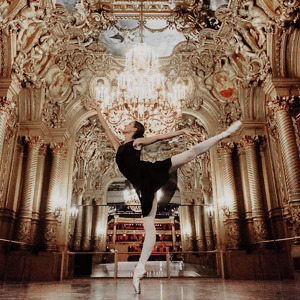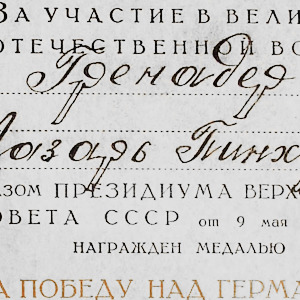Don't wanna be here? Send us removal request.
Photo

hello!! if ur having trouble with literary devices, fear not bc here’s a list of the most commonly common devices used with definitions and examples. i hope this helps :-)
ps: here is a downloadable PDF file
DEFINITION OF LITERARY DEVICES: narrative techniques that add texture, energy and excitement to the narrative, grip the reader’s imagination and convey information.
ALLEGORY:
A symbolism device where the meaning of a greater, often abstract, concept is conveyed with the aid of a more corporeal object or idea being used as an example. Usually a rhetoric device, an allegory suggests a meaning via metaphoric examples.
Example: Faith is like a stony uphill climb: a single stumble might send you sprawling but belief and steadfastness will see you to the very top.
ALLITERATION:
literary device where words are used in quick succession and begin with letters belonging to the same sound group. Whether it is the consonant sound or a specific vowel group, the alliteration involves creating a repetition of similar sounds in the sentence. Alliterations are also created when the words all begin with the same letter.
Example: The Wicked Witch of the West went her own way.
ALLUSION:
Events or characters from another story in her own story with the hopes that those events will add context or depth to the story she’s trying to tell.
allusions are often to very famous works such as the Bible or Shakespearean plays.
doesn’t have to specifically name the character or event it’s referring to
Example: Night after night our hero lay in bed with the flu, hacking mucus and blood and seeing behind his eyelids the angels or devils come to collect him. But one morning, like Lazarus, he was whole again… (allusion to Lazarus who famously rose from the dead)
ASSONANCE:
Takes place when two or more words close to one another repeat the same vowel but start with different consonant sounds
Repetition of only vowel sounds. Assonance is the opposite of consonance, which implies repetitive usage of consonant sounds.
Example: Men sell the wedding bells.
DICTION:
Author’s choice of words
When describing the events of her story, an author never has just one word at her disposal. Rather, she must choose from many words that have similar denotative meanings (the definition you’d find in a dictionary), but different connotative meanings (the associations, positive or negative with a given word).
Example: imagine that a child in a story comes home from school and tells his parents about his day.
· 'Tommy made fun of me, so I nicked his eye with a stick.’
· 'Tommy made fun of me, so I poked his eye with a stick.’
· 'Tommy made fun of me, so I stabbed his eye with a stick.’
· 'Tommy made fun of me, so I gouged his eye with a stick.’
words nicked, poked, stabbed and gouged all have similar denotative meanings, but notice how an author’s choosing one or the other would drastically affect how we understand how well Tommy fared.
EPIGRAPH:
a work where the author under the title has included a quotation from some other work; often the quotation is in italics.
Like an allusion, an epigraph is a reference to another work that an author hopes will help readers understand her own work.
Unlike an allusion, an epigraph stands apart from the text itself rather than being included in it.
Example: T.S. Eliot’s famous poem ‘The Love Song of J. Alfred Prufrock.’ The epigraph is from Dante’s Inferno…
If I but thought that my response were made to one perhaps returning to the world, / this tongue of flame would cease to flicker. / But since, up from these depths, no one has yet / returned alive, if what I hear is true, / I answer without fear of being shamed.
FORESHADOWING:
author hints at the ending of or at an upcoming event in her story without fully divulging it
Example: Ernest Hemingway’s famous novel A Farewell to Arms, a key character dies while it’s raining.
To hint at that death, Hemingway earlier in the book includes a scene where the character admits that she is afraid of the rain because sometimes she sees herself dead in it.While this is just an irrational vision, it also gives the reader an ominous detail and hints at an event that might be to come.
HYPERBOLE
uses specific words and phrases that exaggerate and overemphasize the basic crux of the statement in order to produce a grander, more noticeable effect.
purpose of hyperbole is to create a larger-than-life effect and overly stress a specific point. Such sentences usually convey an action or sentiment that is generally not practically/ realistically possible or plausible but helps emphasize an emotion.
Examples: “I am so tired I cannot walk another inch” or “I’m so sleepy I might fall asleep standing here”.
IMAGERY:
When an author chooses words for their connotative associations (see the above discussion of ‘diction’), she chooses sensory details for the associations or tones they evoke
Example: Theodore Roethke’s famous poem, ‘My Papa’s Waltz,’ we see a young boy dance with his drunken father. It’s a happy memory for the boy, but also the poem hints at the father’s dangerous condition. One of the ways Roethke achieves this is through his selection of imagery.
The whiskey on your breath
Could make a small boy dizzy;
But I hung on like death:
Such waltzing was not easy.
INTERNAL RHYME:
practice of forming a rhyme in only one lone line of verse
also known as the middle rhyme because it is typically constructed in the middle of a line to rhyme with the bit at the end of the same metrical line.
Example: The line from the famed poem Ancient Mariner, “We were the first that ever burst”.
IRONY:
playing around with words such that the meaning implied by a sentence or word is actually different from the literal meaning.
used to suggest the stark contrast of the literal meaning being put forth. The deeper, real layer of significance is revealed not by the words themselves but the situation and the context in which they are placed.
Example: Writing a sentence such as, “Oh! What fine luck I have!”. The sentence on the surface conveys that the speaker is happy with their luck but actually what they mean is that they are extremely unhappy and dissatisfied with their (bad) luck.
JUXTAPOSITION:
literary device wherein the author places a person, concept, place, idea or theme parallel to another.
two directly or indirectly related entities close together in literature is to highlight the contrast between the two and compare them. This literary device is usually used for etching out a character in detail, creating suspense or lending a rhetorical effect.
Example: A woman giving birth on a battle field in the middle of a war would be juxtaposition. This scene would compare the beauty of life beginning to the gore of lives ending by force.
METAPHOR
one of the most extensively used literary devices. A metaphor refers to a meaning or identity ascribed to one subject by way of another. In a metaphor, one subject is implied to be another so as to draw a comparison between their similarities and shared traits. The first subject, which is the focus of the sentences is usually compared to the second subject, which is used to convey a degree of meaning that is used to characterize the first. The purpose of using a metaphor is to take an identity or concept that we understand clearly (second subject) and use it to better understand the lesser known element (the first subject).
Example: “Henry was a lion on the battlefield”. This sentence suggests that Henry fought so valiantly and bravely that he embodied all the personality traits we attribute to the ferocious animal. This sentence implies immediately that Henry was courageous and fearless, much like the King of the Jungle.
PERSONIFICATION
one of the most commonly used and recognized literary devices. It refers to the practice of attaching human traits and characteristics with inanimate objects, phenomena and animals.
Example: “The raging winds” “The wise owl” “The warm and comforting fire”
ONOMATOPOEIA
words whose very sound is very close to the sound they are meant to depict. In other words, it refers to sound words whose pronunciation to the actual sound they represent.
Example: Clack, Clack, the gunshots went off during a drive by in Compton!!
PARADOX
use of concepts or ideas that are contradictory to one another, yet, when placed together hold significant value on several levels. The uniqueness of paradoxes lies in the fact that a deeper level of meaning and significance is not revealed at first glance, but when it does crystallize, it provides astonishing insight.
Example: High walls make not a palace; full coffers make not a kin
POINT OF VIEW
Manner in which a story is narrated or depicted and who it is that tells the story.
determines the angle and perception of the story unfolding, and thus influences the tone in which the story takes place.
o Objective Point of View - writer tells what happens without stating more than can be inferred from the story’s action and dialogue. The narrator never discloses anything about what the characters think or feel, remaining a detached observer.
o Third Person Point of View Here the narrator does not participate in the action of the story as one of the characters, but lets us know exactly how the characters feel. We learn about the characters through this outside voice.
o First Person Point of View In the first person point of view, the narrator does participate in the action of the story. When reading stories in the first person, we need to realize that what the narrator is recounting might not be the objective truth. We should question the trustworthiness of the accounting.
o Omniscient and Limited Omniscient Points of View A narrator who knows everything about all the characters is all knowing, or omniscient.
o A narrator whose knowledge is limited to one character, either major or minor, has a limited omniscient point of view.
RHYME SCHEME
Practice of rhyming words placed at the end of the lines in the prose or poetry.
Order in which particular words rhyme.
SATIRE
Practice of making fun of a human weakness or character flaw.
Inclusive of a need or decision of correcting or bettering the character that is on the receiving end of the satire. In general, even though satire might be humorous and may “make fun”, its purpose is not to entertain and amuse but actually to derive a reaction of contempt from the reader.
SIMILE
Referring to the practice of drawing parallels or comparisons between two unrelated and dissimilar things, people, beings, places and concepts.
Using similes a greater degree of meaning and understanding is attached to an otherwise simple sentence. The reader is able to better understand the sentiment the author wishes to convey.
Key words: ‘as’ or ‘such as’ or ‘like’.
SYMBOL
Contains several layers of meaning, often concealed at first sight, and is representative of several other aspects, concepts or traits than those that are visible in the literal translation alone.
is using an object or action that means something more than its literal meaning.
Example: The phrase “a new dawn” does not talk only about the actual beginning of a new day but also signifies a new start, a fresh chance to begin and the end of a previous tiring time.
SYNECHDOCE
uses a part of something to refer to the whole or vice versa. It is somewhat rhetorical in nature, where the entire object is represented by way of a fraction of it or a fraction of the object is symbolized by the whole.
Example: “Weary feet in the walk of life”, does not refer to the feet actually being tired or painful; it is symbolic of a long, hard struggle through the journey of life and feeling low, tired, unoptimistic and ‘the walk of life’ does not represent an actual path or distance covered, instead refers to the entire sequence of life events that has made the person tired.
SYNTAX
actual way in which words and sentences are placed together in the writing. Usually in the English language the syntax should follow a pattern of subject-verb-object agreement but sometimes authors play around with this to achieve a lyrical, rhythmic, rhetoric or questioning effect. It is not related to the act of choosing specific words or even the meaning of each word or the overall meanings conveyed by the sentences.
Example: The sentence “The man drives the car” would follow normal syntax in the English language. By changing the syntax to “The car drives the man”, the sentence becomes awkward.
SOURCES
http://study.com/academy/lesson/literary-devices-definition-examples-quiz.html
http://literary-devices.com/
http://www.learner.org/interactives/literature/read/pov2.html
11K notes
·
View notes
Photo

Alleys in Urbino (Marche, Italy) by Fillo25
2K notes
·
View notes
Photo

{worldly inspiration}
civ vi england x
civ vi china x
civ vi japan x
civ vi india x
civ vi russia x
civ vi france x
civ vi germany x
civ vi egypt x
civ vi arabia x
civ vi greece x
civ vi rome x
civ vi sumeria x
civ vi kongo x
civ vi spain x
civ vi brazil x
civ vi norway x
civ vi america x
civ vi poland x
civ vi aztec x
civ vi scythia x
japanese instrumental x
chinese instrumental x
korean playlist for studying x
jewish folk music x
french accordion x
{cute}
animal crossing i x
animal crossing ii x
mozart lullaby for babies x
studio ghibli music collection i x
studio ghibli music collection ii x
studio ghibli bossa nova x
studio ghibli music box x
super mario galaxy x
calming nintendo music x
legend of zelda x
relaxing video game mix x
song of the sea ost x
kpop piano x
disney piano x
kingdom hearts x
music box i x
music box ii x
misc japanese bgm i x
misc japanese bgm ii x
{classical}
chopin collection x
beethoven collection x
tchaikovsky collection x
mozart collection x
brahms collection x
schubert collection x
debussy collection x
{star wars}
episode i x
episode ii x
episode iii x
episode iv x
episode v x
episode vi x
episode vii x
rogue one x
dagobah yoda’s hut x
tatooine dune sea x
hoth i x
hoth ii x
coruscant apartment x
kashyyyk at night x
endor at night x
{harry potter}
the philosopher’s stone x
chamber of secrets x
prisoner of azkaban x
goblet of fire x
order of the phoenix x
half-blood prince x
deathly hallows part 1 x
deathly hallows part 2 x
hogwarts library x
diagon alley x
hogsmeade x
forbidden forest at night x
dumbledore’s office x
hogwarts great hall at christmas x
weasley house x
ravenclaw common room i x
ravenclaw common room ii x
gryffindor common room i x
gryffindor common room ii x
hufflepuff common room i x
hufflepuff common room ii x
slytherin common room i x
slytherin common room ii x
{misc}
game of thrones x
amélie ost x
jurassic park ost x
pride & prejudice ost x
bossa nova cafe music x
sound of the shrine x
13K notes
·
View notes
Text
italian vocab (christmas edition)
non demordere - don’t give up, hang in there
ingerire - to ingest, to swallow
spalmare - to smatter, to spread
fulcro - fulcrum, focus, core
renna - reindeer
andare a male - to go to waste, to spoil, to go off
sorte - fate, luck, fortune, lot
remora - fear, concern, qualm, hesitation
36 notes
·
View notes
Photo

Why would he want to do that
[Image transcription: “Li volas manĝi unu kilogramon da tomatoj” which translates to “He wants to eat one kilogram of tomatoes”]
81 notes
·
View notes
Text
does anyone ever get so overwhelmed by how much you love a language that you just sit there with this expanding warmth in your heart and you want to absorb every aspect of the language bc I think that is the purest thing
1K notes
·
View notes
Text
Cute Italian Vocab

Inspired by this wonderful list by @pycckuu
Nouns
alba (f) – dawn
amicizia (f) – friendship
amore (m) – love
arte (f) – art
bacio (m) – kiss
campo (m) – field, meadow
cielo (m) – sky, heaven
futuro (m) – future
gioia (f) – joy
guancia (f) – cheek
luce (f) – light
luce solare (f) – sunlight
luna (f) – moon
mondo (m) – world
natura (f) – nature
nome (m) – name
nuvola (f) – cloud
occhio (m) – eye
oceano (m) – ocean
pace (f) – peace
parto (m) | nascita (f) – birth
pelle (f) – skin
poesia (f) – poetry
risata (f) – laughter
sole (m)– sun
sorriso (m) – smile
speranza (f) – hope
stella (f) – star
terra (f) – Earth
umanità (f) – humanity
umano (m) – human
universe (m) – universe
vita (f) – life
Verbs
amare – to love
baciare – to kiss
brillare | splendere – to shine brightly
essere nato/a – to be born
imparare – to learn
innamorarsi– to fall in love
ridere – to laugh
scintillare | luccicare – to sparkle
sorridere – to smile
svegliarsi– to wake up
toccare – to touch
vivere – to live
Adjectives
amichevole – friendly
bene – good
brillante – shining
content/a | felice – happy
curioso/a – curious
delicate/a – delicate
generoso/a – generous
gentile – kind
gentile | leggero/a – gentle
liscio/a – smooth
luminoso/a – sparkling
morbido – soft
raggiante– glowing
sincero/a – honest
tranquillo/a – calm
991 notes
·
View notes
Text
Italian Duolingo: Adverbs List
quando - when
insomma - in short
solo - only
là, lì - there
finalmente - finally
veramente - really
comunque - anyway
abbastanza - enough
fortunatamente - fortunately
assolutamente - absolutely
completamente - completely
sicuramente - certainly
neanche - neither
subito - immediately
oltre - beyond
tuttavia - however
particolarmente - particularly
benissimo - very well
dentro - inside
almeno - at least
quanto - how much
anche - also
però - but
magari - perhaps
piuttosto - rather
ovviamente - obviously
pure - too
attualmente - currently
ovunque - everywhere
meglio - better
certo - certain
soprattutto - especially
intorno - around
più - more
proprio - (his/her/its) own
allora - so
fuori - outside
poi - then
mai - never
sopra - above
prima - before
quasi - almost
così - so, thus
spesso - often
dopo - after
sotto - under
tanto - many
soltanto - only
insieme - together
adesso - now
appena - hardly
troppo - too
molto - many
dove - where
già - already
sempre - always
qui - here
inoltre - besides
bene - well
ancora - still
meno - less
circa - about
davvero - really
poco - little
forse - maybe
342 notes
·
View notes
Text
50 Reasons Why You Should Study
Need motivation?
To get an education.
To earn a degree. There are barely any jobs that offer positions to people without a degree, or are on the path of obtaining one.
To prove people wrong. That science teacher that said you’ll never make it in the medical field? Make him eat his words.
To prove yourself wrong. Every student has doubts on whether or not they can be good enough in the classroom. Prove yourself wrong, and always be better than you were yesterday.
This is a privilege. Regardless of how much you believe that you HAVE to do this, to some extend you don’t. Realize that you have the privilege of an education even being an option for you.
Take advantage of what you’re capable of. Don’t waste a perfectly intelligent mind.
More money. That degree can do wonderful things to your bank account in the future.
It’s interesting. Studying can get pretty boring, but there are always those topics that spark your curiosity and motivate you to learn more.
It’s attractive. Not everyone cares for someone who is academically gifted, but a partner who is eager to learn makes me eager to take my pants off.
It’s useful. That random fact that you read in a random textbook can stick with you and really end up helping you out one day.
It’s fun to know useless shit sometimes.
To make your parents proud. This is one of the main reasons I study. My parents have always been aware of my capabilities and have pushed me to be academically better every year. They know I have big dreams, and I just want to achieve them so they can know that their child made it.
To make myself proud. This goes along with number four. Knowing that you accomplished something, however small or big the thing may be, is a huge self-esteem booster.
To be independent. There’s nothing quite like knowing that you don’t need someone else’s job, degree, intelligence, or presence to make you successful.
To pursue your passion.
To gain knowledge. Whether its in your field, or a completely different one, being knowledgeable is just downright fun.
People will look up to you. Your siblings, your best friends, and your classmates may see you consistently studying, and it could motivate them to do the same.
To make a name for yourself. “Oh yeah, (insert name here), I know them. Aren’t they like really successful now?”
To become your own role model.
To be able to pay off your student loans.
Because the long nights and excessive coffee will all be worth it. Even if it doesn’t seem like it now.
To exercise your brain. Your brain is just like a muscle, and like the body it needs to be exercised.
To improve your hippocampus. Your hippocamus is responsible for memory, and if you study your memorization will become significantly better.
To not waste time doing useless stuff.
Because stationary is amazing. I could spend a whole paycheck on just pens.
Because notes are actually all so pretty.
To be productive. I used to spend a lot of time on social media, and although I still do, the amount of time I spend studying and getting stuff done has definitely increased.
So classes will be easier.
So tests will be easier.
To impress your professors. Get those letters of recommendation!
So the anxiety of getting a bad grade is sufficiently decreased. I constantly worry about my grades, but studying has helped me not worry so much.
Because coffee exists.
There is no other atmosphere quite like the inside of a library.
So you won’t have to retake a class. Failing a prerequisite for your major really sucks, so maybe try not failing the first time around. This also saves you a lot of money because you won’t have to pay for the class again.
Finals week won’t suck as bad. You’ll be used to studying so when finals week comes around it wont nearly be as stressful as for those students who are now opening a textbook.
You won’t go to as many college parties. Don’t get me wrong, I am all for socializing and having fun, but a lot can go wrong at a college party very quickly. And there’s no better way to prevent that, than just not going to the party cause you’re reading your economics textbook.
You’ll get used to FOMO. Fear of Missing Out. Every teenagers nightmare. Eventually, you’ll get used to the feeling.
You’ll be getting the most out of your college experience. You’re paying for these classes. Might as well try your best to pass.
You’ll get used to not getting enough sleep. So, if you decide to go to grad school you’ll have that department covered.
There’s really good study music out there.
I guarantee there will be at least 5 places on campus, or around you that are perfect for studying, and you’ll want to go there everyday.
You’ll become a pro at writing essays, or lab reports.
You’ll learn fairly quickly that study groups rarely work.
You’ll make a lot of friends that are just as passionate about studying as you are. And you will cherish them.
Beauty and Brains. Don’t you want to fit that description?
Thousands of students before you have done it, so you can too.
You can run a studyblr. Aren’t they the cutest?
You get really good at time management.
Sleep becomes 5x more satisfactory after a night of studying.
Because you want to. There’s no better motivation for studying, than the motivation that comes from within.
38K notes
·
View notes
Photo









Language moodboard: British English
all of these photos are mine
645 notes
·
View notes
Photo









Language Moodboard ↠ English
562 notes
·
View notes
Video
tumblr
664K notes
·
View notes
Photo









Language Moodboard ↠ Russian
4K notes
·
View notes
Photo

Official languages of the United Nations.
478 notes
·
View notes
Photo


Giveaway Contest: We’re giving away ten vintage paperback classics by William Faulkner, Harper Lee, Alice Walker, George Orwell, Richard Wright, and others. Won’t these look lovely on your shelf? :D To win these classics, you must: 1) be following macrolit on Tumblr (yes, we will check. :P), and 2) reblog this post. We will randomly choose a winner on January 22, at which time we’ll start a new giveaway. And yes, we’ll ship to any country. Easy, right? Good luck!
13K notes
·
View notes
Text

Hey guys!
I thought about this for a while, and came to the conclusion that I’d love to start a network, in time for the start of the new year! Most of us have “get better grades”/”study harder”/”learn a new skill” as one of their new years resolutions, so I thought it would make sense to create a supporting environment for that these kind of goals!
What’s the purpose of this?
meet like-minded people
promote your posts
motivate yourself
have fun
find a study buddy
reach your goals in 2k17
A study buddy?
I thought it would be efficient to assign every member a buddy to help them, motivate them, and just be friends with. That would greatly increase the individual communication between members, and ameliorate your chances to reach your goals!
Other projects
Of course, I have also thought about others things I’d like to initiate, maybe along the lines of a zine or challenge. We could discuss that in the network, too.
How do I join?
fill out this form
follow me (@studyblr)
reblog this post
All new info regarding the network will be posted under the hashtag #studyblr2017network
Members will be announced 31st of December 2016!
Wish you all happy holidays and a beautiful new year!
915 notes
·
View notes
Text
When you’re looking for a slav bf because you want the Д
3K notes
·
View notes